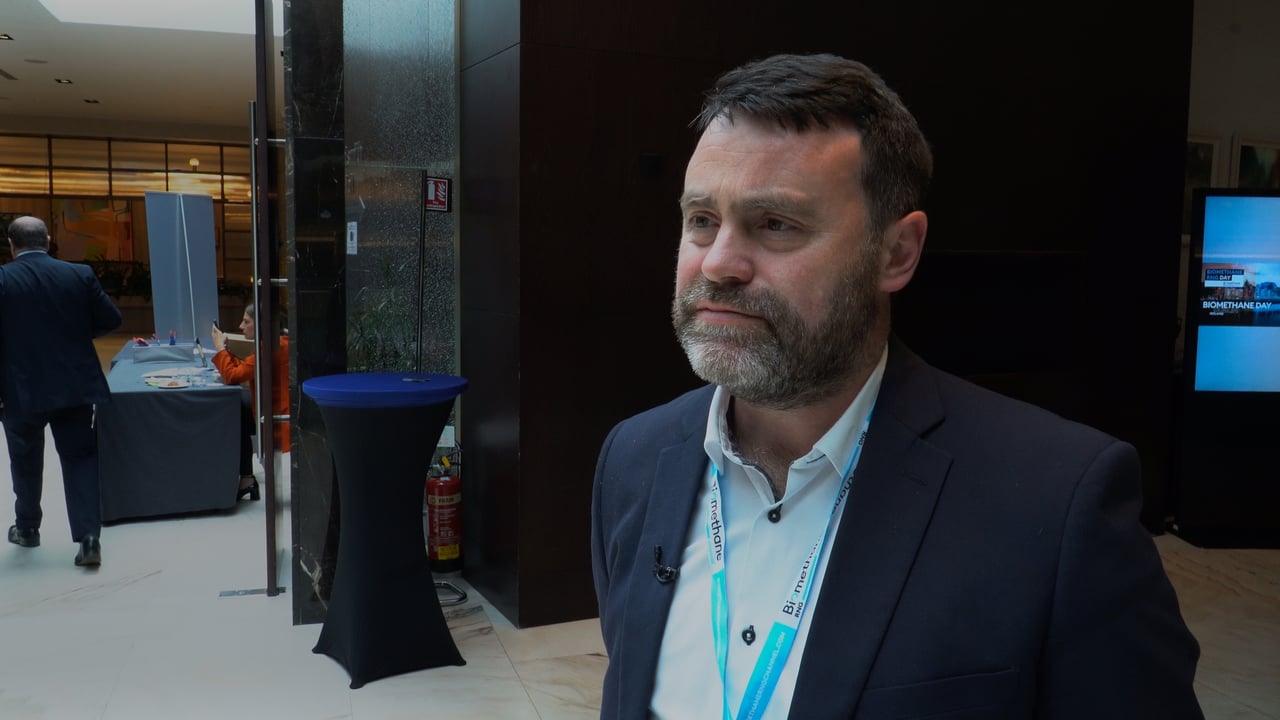Watch: How can tillage farmers benefit from AD plants?
The head of public sector services and economics at the Irish Farm Accounts Cooperative (ifac), Karol Kissane has said that biomethane provides a "huge opportunity" for tillage farmers.
Kissane was a panelist at the Nephin Biomethane Day conference in Dublin yesterday (June 25).
He told Agriland that he believes anaerobic digestion (AD) plants could provide "guaranteed income every year" for tillage farmers.
Kissane said: "The Biomethane Strategy was launched last May 2024. We’re here a year later. In all honesty, no new plants have been built. There’s no biomethane in the actual grid.
"It’s just to highlight those issues, to see what’s there, and to show farmers the opportunities that do exist - from an agricultural point of view - to be a feedstock supplier into this industry. Or maybe even to be an owner or developer of one of these plants.
"There’s an opportunity for everybody. It’s not a case that it’s just for dairy farmers that will have slurry, but all farmers.
"Grass-based farmers have the option that grass can be fed into these biomethane plants, to these AD plants," Kissane added.
Kissane highlighted that tillage farmers have been "under pressure" in recent years due to global prices.
He believes that certainty within the industry would help the sector to "develop further and grow".
"For tillage farmers to become involved, there’s two options. The first option is that the tillage farmer might look at developing an AD plant," Kissane said.
"It’s not an easy process, it’s complicated enough to develop one. You’ve got planning, regulations, how you’re going to build it, contracts, and how you’re going to finance it.
"A larger AD plant is going to be north of €15 million to build. So there is that option for larger farmers, or a number of farmers together maybe in a co-op to build a plant," he added.
Another option available for tillage farmers is to sign feedstock contracts with AD developers who are already building a plant.
Kissane explained: "By having a relationship with the AD developer, they’re probably going to be supplying back digestate to you, which is going to be rich in nutrients, it’s going to be a soil conditioner, and replacing a lot of chemical fertiliser, hopefully, so it’s a win-win on both those sides.
"For the last number of years, tillage has been struggling. With something like this for a tillage farmer, 20% or 25% of rotation is going into the AD plant.
"You’ve a long-term contract in place, and you’re de-risking at the other side, where you’re taking away the risk of higher fertiliser prices by getting natural digestate back," Kissane added.





